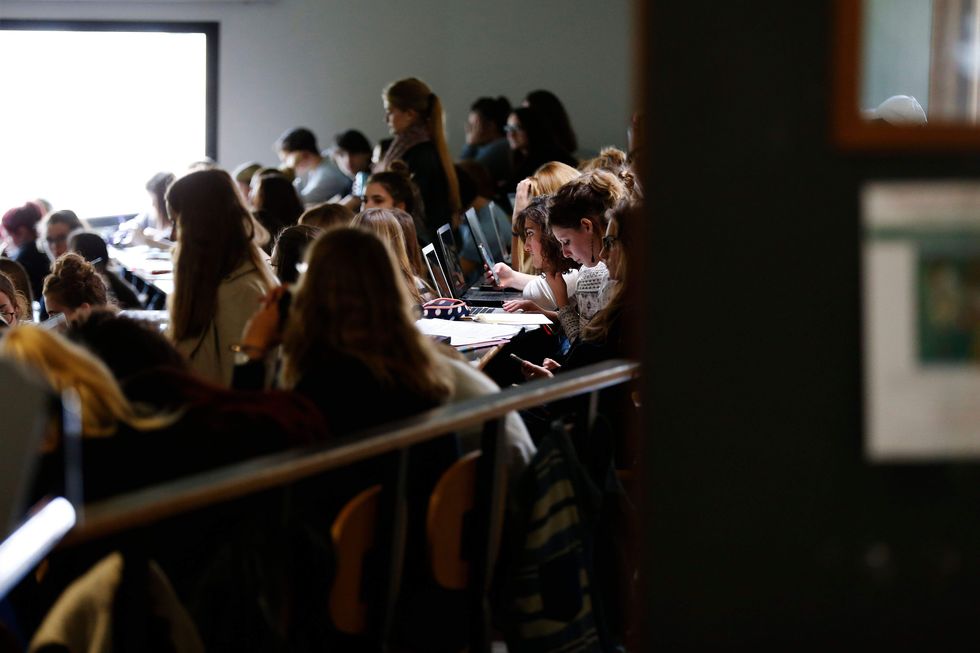
A University of Pennsylvania graduate assistant is facing scrutiny for a teaching style that calls on minorities and women first. (CHARLY TRIBALLEAU/AFP/Getty Images)

Students in Stephanie McKellop's classes at the University of Pennsylvania can judge their likelihood of getting called on just by examining their classmates.
That's because McKellop openly admits she calls on students in a particular order based on race and gender.
Now, Penn is investigating whether her teaching style is discriminatory.
McKellop discussed her teaching style on Twitter earlier this week, and the backlash to her posts triggered a controversy that now requires university attention.
"I will always call on my black women students first. Other [people of color] get second-tier priority. [White women] come next. And, if I have to, white men."
McKellop is using a teaching method referred to as "progressive stacking." Progressive stacking means giving members of marginalized groups the opportunity to speak before the perceived "dominant" group.
McKellop's stated hierarchy is:
The idea behind this method is that professors bring implicit, subconscious biases into the classroom, and a hierarchy that elevates marginalized groups accounts for that. It has both supporters and critics within the academic realm.
“If I have a class of 40 students, since Hunter is predominantly young women, I may have four or five young men in class,” said Jessie Daniels, a sociology professor at Hunter College. “There’s still implicit bias, where we value men’s voices more than women’s voices, or men’s voices are deeper and carry more in a class. So I’m always trying to overcome my own bias to pick on men in class more than the women.”
Other educators prefer more random or equality-based methods.
Cathy Davidson, director of the Futures Initiative at CUNY’s Graduate Center advocates for "inventory" methods of participation that encourage all students to participate through discussions or shared writing exercises.
Steven J. Fluharty, dean of the School of Arts and Sciences, said that McKellop is still being allowed to teach in her program as this matter is being reviewed.
According to Fluharty, Penn is “looking into the current matter involving a graduate student teaching assistant to ensure that our students were not subjected to discriminatory practices in the classroom and to ensure that all of our students feel heard and equally engaged.”
(H/T Inside Higher Ed)